What to Know Before Investing in a Condo as a Rental Property
Understanding Condo Investment Basics
Investing in a condominium as a rental property can be an appealing option for many real estate investors, offering lower upfront costs compared to single-family homes, along with the potential for steady cash flow. However, before jumping in, it’s important to understand what makes condos unique as rental properties and how they differ from other types of real estate investments. This guide will walk you through the essential factors to consider before purchasing a condo for rental purposes, along with actionable advice to help you make informed decisions.
Benefits of Investing in a Condo
Condos offer several advantages that can make them an attractive choice for real estate investors. These benefits include:
Lower Purchase Price
Compared to single-family homes, condos generally have a lower purchase price, which can make them more accessible for investors, especially those with limited capital. This lower initial investment cost means that investors can enter the market more easily or acquire multiple units.
Potential for Steady Rental Income
Many condos are located in areas with strong demand for rental properties, such as urban centers, tourist destinations, or near business hubs. This demand can translate into steady rental income, especially if the property is well-maintained and located in a desirable neighborhood.
Less Maintenance Responsibility
One of the significant benefits of owning a condo is that the exterior maintenance, such as lawn care, roof repairs, and building structure upkeep, is generally handled by the homeowners’ association (HOA). This reduces the responsibility of the landlord and can save you both time and money in maintenance costs.
Challenges of Investing in a Condo
While condos can be a good investment, they also come with challenges that investors need to be aware of. It’s important to consider the following potential drawbacks before making your purchase.
Homeowners’ Association (HOA) Fees
One of the biggest ongoing costs associated with owning a condo is the HOA fee, which can be quite substantial. These fees cover the cost of common area maintenance, amenities, and sometimes utilities. It’s crucial to factor these fees into your rental property calculations, as they can significantly impact your profitability.
HOA Restrictions and Rules
Most condos are governed by an HOA, which can impose rules and restrictions that affect how you use your property. For example, some HOAs prohibit short-term rentals or have strict requirements about renovations and modifications to your unit. These rules may limit your ability to generate income from your property or make it more difficult to attract certain tenants.
Limited Control Over Common Areas
As a condo owner, you share common areas such as hallways, elevators, and parking spaces with other residents. If any issues arise with these common areas, such as damage or disputes with neighbors, you may not have direct control over the resolution process. This lack of control can be frustrating if you want to ensure that your property remains in good condition for tenants.
Evaluating the Condo’s Location
The location of the condo is one of the most critical factors in determining its potential as a rental property. Before purchasing a condo, take the time to evaluate the neighborhood and surrounding area carefully. Consider the following aspects:
Proximity to Key Amenities
Look for condos that are located near essential amenities, such as public transportation, grocery stores, schools, hospitals, and recreational areas. Proximity to these amenities can make the condo more appealing to tenants and increase your chances of attracting long-term renters.
Job Market and Economic Stability
Research the local job market and economic conditions of the area where the condo is located. A thriving job market can attract renters who are looking for a place to live close to work. Conversely, areas with a declining economy may have lower demand for rental properties, leading to higher vacancy rates and reduced rental income.
Safety and Crime Rates
Safety is a top concern for tenants, and investing in a condo located in a high-crime area can lead to higher vacancy rates and challenges in attracting quality tenants. Make sure to research crime rates in the area before purchasing a condo, and consider the safety features of the building, such as security systems, well-lit areas, and gated entrances.
Future Development and Property Value
Research any upcoming development projects in the area that could impact the value of your condo. Future developments, such as new infrastructure projects or commercial developments, could increase the demand for rental properties in the area and lead to a rise in property values. On the other hand, new developments that bring overcrowding or traffic congestion could have the opposite effect.
Researching the Condo Building
Once you’ve identified a location that seems promising, it’s time to turn your attention to the specific condo building you’re considering. Evaluate the following factors:
Condo Building’s Age and Condition
The age and condition of the condo building can affect your long-term investment potential. Older buildings may require more maintenance and repairs, which can eat into your profits. Make sure to conduct a thorough inspection of the building to assess its overall condition, including the plumbing, electrical systems, and structural integrity. If significant repairs are needed, consider the cost and how it may impact your investment.
Condo Amenities
Consider the amenities that the building offers, such as a pool, gym, or parking garage. While these amenities can be attractive to tenants, they also come with additional maintenance costs and may contribute to higher HOA fees. On the other hand, a building with desirable amenities can attract higher-paying tenants and increase your rental income.
HOA’s Financial Health
The financial health of the condo’s HOA is another critical factor to assess. If the HOA is in poor financial condition or has significant debt, it could lead to unexpected fee increases or special assessments. Request the HOA’s financial records, including budgets and reserve funds, to evaluate its financial stability. This will give you a better idea of whether you’ll be dealing with surprise expenses in the future.
Tenant Demand and Rental Rates
Research the current rental rates for similar units in the building or nearby condos. A condo’s rental rate can vary depending on its size, amenities, and condition, so it’s important to ensure that the potential rental income will justify the investment. Additionally, check the demand for rental units in the area. High demand and low vacancy rates can indicate a strong rental market, making it more likely that your condo will generate consistent rental income.
Calculating Potential Return on Investment (ROI)
Before committing to a condo purchase, it’s crucial to calculate the potential return on investment (ROI). This involves comparing your expected rental income to your total expenses, including the mortgage, HOA fees, insurance, maintenance costs, and property taxes. Your ROI will give you a clearer picture of whether the investment will be profitable.
Gross Rental Income vs. Net Income
When calculating ROI, it’s important to distinguish between gross rental income and net income. Gross rental income is the total amount you expect to earn from rent, while net income takes into account all of your expenses. Your net income will be the true measure of your investment’s profitability.
Financing Options for Condo Investments
Consider the financing options available to you when purchasing a condo as a rental property. Lenders often have specific requirements for condo loans, including the percentage of the building that is owner-occupied and the financial health of the HOA. Make sure to research these requirements before applying for a mortgage to ensure you can secure the best financing options for your investment.
Property Management Costs
If you plan to hire a property management company to handle the day-to-day responsibilities of managing your condo, be sure to factor in their fees. Property management companies typically charge between 8% and 12% of the monthly rental income. While this fee can reduce your profitability, it can save you time and effort if you don’t want to manage the property yourself.
Legal and Tax Considerations
Before investing in a condo as a rental property, make sure you understand the legal and tax implications. Research the local landlord-tenant laws, rental regulations, and tax rules that apply to rental properties. Depending on your location, there may be specific regulations governing condo rentals, such as restrictions on short-term rentals or requirements for tenant background checks.
Tax Deductions and Depreciation
As a rental property owner, you may be eligible for certain tax deductions, such as property tax deductions, mortgage interest deductions, and depreciation. Depreciation allows you to deduct a portion of the condo’s value over time, which can help offset rental income and reduce your taxable income. Consult with a tax professional to understand the tax benefits available to you as a condo investor.
Insurance Requirements
Ensure that you have the appropriate insurance coverage for your condo, including landlord insurance and renters’ insurance for your tenants. Landlord insurance typically covers property damage, liability, and loss of rental income due to unforeseen circumstances. It’s essential to review the insurance requirements set by the HOA as well, as some associations may require specific types of coverage for condo owners.

Get a Free Rental Analysis
Want to know how much your home will rent for? We’ll send you a free rental report!
Understanding Condo Financing Options
When investing in a condo as a rental property, one of the key factors to consider is how you will finance your purchase. Unlike traditional single-family homes, condo financing comes with unique challenges and requirements. Understanding these financing options and how they apply to your investment strategy will help ensure a smoother purchasing process and minimize potential issues.
Conventional Loans for Condo Purchases
Conventional loans are one of the most common financing options for condo buyers. These loans are offered by private lenders, such as banks or credit unions, and typically require a down payment of 20% to 25%. The interest rates on conventional loans are usually lower compared to other financing options, making them an attractive choice for investors.
However, not all condos are eligible for conventional loans. Fannie Mae and Freddie Mac, the two government-sponsored enterprises that buy and sell mortgages, have specific requirements for condos. For example, the condo building must meet certain criteria, such as having a certain percentage of owner-occupied units and financial stability within the HOA. It’s important to check whether the condo you are considering meets these requirements before applying for a conventional loan.
FHA Loans for Condos
The Federal Housing Administration (FHA) offers loans that can be used to purchase condos, which is a more accessible financing option for first-time homebuyers or those with lower credit scores. FHA loans generally require a smaller down payment (as low as 3.5%) and have more lenient credit score requirements.
However, FHA loans are subject to stricter guidelines for condos. For instance, the condo building must be approved by the FHA, and the community must meet specific financial and structural criteria. FHA-approved condo buildings are often listed on the FHA’s website, making it easier to find eligible properties.
One downside of FHA loans is that they are typically not available for investors who plan to rent out the condo immediately. FHA loans are intended primarily for owner-occupants, so they may not be the best option if you’re looking to purchase a condo solely for rental purposes.
VA Loans for Condos
For military veterans, active-duty service members, and qualifying spouses, the U.S. Department of Veterans Affairs (VA) offers loans to purchase condos with no down payment and competitive interest rates. Like FHA loans, VA loans are subject to certain eligibility requirements, and the condo must be located in an approved VA community.
The VA’s requirements for condo buildings are similar to those of FHA loans, with an emphasis on ensuring the community is financially stable and meets specific maintenance standards. If you’re a veteran or service member considering investing in a condo, VA loans can be a valuable financing option.
Jumbo Loans for Condos
If you’re purchasing a luxury condo that exceeds the conforming loan limits (usually above $750,000 in many areas), you may need to secure a jumbo loan. Jumbo loans are non-conforming loans that are offered by private lenders and typically require larger down payments, higher credit scores, and more documentation compared to conventional loans.
Jumbo loans can be useful for purchasing high-end condos in sought-after locations, but they also come with higher interest rates and stricter underwriting requirements. Ensure that your condo investment aligns with your financial situation before pursuing a jumbo loan.
Investment Property Loans
If you are purchasing a condo solely for investment purposes (i.e., as a rental property), you may be able to obtain an investment property loan. These loans are designed specifically for individuals looking to purchase property to generate rental income or for flipping purposes.
Investment property loans typically require a larger down payment (usually 25% or more) and higher interest rates compared to loans for primary residences. Lenders may also scrutinize your credit history, income, and assets more carefully, as the loan is considered riskier than loans for owner-occupied properties.
Before applying for an investment property loan, make sure to assess your financial situation and ensure that you can handle the additional costs and responsibilities associated with owning rental property.
Conducting a Condo Investment Analysis
Before committing to purchasing a condo as a rental property, it’s essential to perform a thorough investment analysis. This involves calculating your expected costs and potential rental income to determine whether the condo will be a profitable investment. Here are some key steps in performing a condo investment analysis:
Estimating Monthly Rental Income
The first step in your analysis is to estimate how much rental income you can expect from the condo. Research the local rental market to determine the average rent for similar units in the area. Consider factors such as the condo’s size, amenities, location, and condition when estimating potential rental income.
Make sure to factor in the type of tenants you want to attract. For example, if you plan to rent out the condo as a short-term vacation rental, you may be able to charge a higher nightly rate, but you will also face higher vacancy rates and increased management responsibilities. On the other hand, long-term renters may provide a more stable income stream but may offer lower rental rates.
Factoring in Expenses
Once you have an estimate of your monthly rental income, it’s time to calculate your expenses. Common expenses for condo investors include:
- Mortgage Payments: The monthly payments on your loan, including principal and interest.
- HOA Fees: The fees paid to the homeowners’ association for maintaining common areas and amenities.
- Property Taxes: The annual property tax amount, divided into monthly payments.
- Insurance: The cost of landlord insurance to protect your property from damage or liability.
- Maintenance and Repairs: While the HOA handles exterior maintenance, you’ll still be responsible for repairs inside the condo, such as plumbing, appliances, or electrical systems.
- Property Management Fees: If you hire a property management company, their fees typically range from 8% to 12% of your monthly rental income.
Add up all these expenses to determine your total monthly costs. Subtract this amount from your estimated rental income to calculate your net rental income.
Calculating Cash Flow
Cash flow is the amount of money you have left after paying your expenses, including your mortgage, HOA fees, insurance, and other costs. Positive cash flow means that you’re earning more from your rental property than you’re spending, which is the ideal scenario for condo investors.
However, even if you have a negative cash flow (where your expenses exceed your rental income), the investment may still make sense if the condo’s value is appreciating over time. In this case, your long-term capital gains could offset short-term losses.
Understanding Cap Rate
The capitalization rate (cap rate) is another important metric for assessing the profitability of a rental property. The cap rate is calculated by dividing the annual net income by the property’s purchase price. For example, if your condo generates $12,000 in annual rental income after expenses, and you purchased the property for $200,000, the cap rate would be 6% ($12,000 ÷ $200,000).
A higher cap rate indicates a better return on investment, but keep in mind that higher cap rates often come with higher risk. Research the average cap rates for condos in your area to determine whether your investment is in line with market standards.
Long-Term Appreciation Potential
While rental income is an essential factor in your investment analysis, it’s also important to consider the long-term appreciation potential of the condo. Over time, the value of the property may increase, allowing you to sell the condo for a profit. Factors that can affect property appreciation include the condo’s location, the overall market trends, and any planned developments in the area.
Keep in mind that real estate markets can fluctuate, and while some condos may appreciate steadily, others may not see the same level of growth. Consider the historical price trends of similar condos in the area and evaluate the potential for future appreciation before making your investment.

Managing a Condo as a Rental Property
Once you have purchased a condo as a rental property, effective management is crucial for ensuring a steady income stream and maximizing your investment returns. Condo management involves several key tasks, from screening tenants to handling maintenance issues. This section explores the most important aspects of condo management and provides actionable advice to help you succeed as a rental property owner.
Tenant Screening and Leasing
One of the most critical aspects of managing a condo as a rental property is selecting the right tenants. Proper tenant screening can help you avoid costly issues down the road, such as late payments, property damage, or tenant turnover.
Conduct Thorough Tenant Screening
Tenant screening involves reviewing applications, checking references, and conducting background and credit checks to ensure potential tenants are reliable and financially stable. Key factors to consider when screening tenants include:
- Credit Score: A good credit score is a strong indicator of financial responsibility. Aim for tenants with a credit score of at least 650-700, depending on the rental market.
- Income Verification: Ensure that the tenant’s monthly income is sufficient to cover the rent. A general rule of thumb is that tenants should earn at least three times the monthly rent.
- Rental History: Check references from previous landlords to ensure the tenant has a history of timely payments and good behavior.
- Criminal Background Check: It’s important to check for any criminal history to ensure the safety of your property and other tenants.
Draft a Strong Lease Agreement
A well-drafted lease agreement is essential for protecting your interests as a landlord and setting clear expectations with tenants. The lease should outline the following:
- Rent Amount and Due Dates: Specify the monthly rent, due date, and any late payment penalties.
- Security Deposit: Include the amount of the security deposit, the conditions under which it can be withheld, and the process for returning it at the end of the lease.
- Maintenance Responsibilities: Clearly define which party is responsible for various maintenance tasks, including repairs to appliances, plumbing, and HVAC systems.
- House Rules: Set rules regarding noise levels, smoking, pets, and any other policies that may be important for your condo building and its HOA.
Understand HOA Rules and Regulations
As a condo owner, you are subject to the rules and regulations set by the homeowners’ association (HOA). These rules may dictate certain aspects of tenant behavior, such as whether pets are allowed, whether tenants can make alterations to the unit, or how many people can occupy a unit.
Ensure that your tenants are fully aware of these HOA rules and include them in the lease agreement. Failure to comply with HOA regulations can result in fines or even eviction, which can disrupt your rental income and cause unnecessary stress.
Maintenance and Repairs
Maintaining your condo is crucial to preserving its value and ensuring that tenants are satisfied with their living conditions. Regular maintenance can prevent costly repairs down the line and minimize tenant complaints.
Regular Property Inspections
Regular inspections are essential for identifying maintenance issues early and ensuring that your condo remains in good condition. These inspections can be scheduled quarterly or bi-annually, depending on the age and condition of the property. During an inspection, check for:
- Plumbing Leaks: Look for signs of water damage, leaks, or mold in bathrooms and kitchens.
- Electrical Systems: Test outlets, light switches, and appliances to ensure they are functioning properly.
- Appliances: Check major appliances like refrigerators, dishwashers, and ovens to ensure they are in good working order.
- HVAC Systems: Ensure that heating and cooling systems are working efficiently, and replace filters regularly.
Hiring Professional Contractors
While some maintenance tasks can be handled by you or your tenants, others require professional help. For example, plumbing, electrical, and HVAC repairs should be handled by licensed contractors to ensure the work meets code and is done safely.
Develop relationships with reliable contractors who specialize in condo maintenance. Having a list of trusted professionals on hand can help you address repairs quickly and efficiently, minimizing downtime for your rental property.
Property Management vs. Self-Management
As a condo owner, you have the option of managing the property yourself or hiring a property management company. Each option has its pros and cons, and your decision will depend on your experience, time availability, and the complexity of the property.
Self-Management
Self-managing your condo can save you money, as you won’t need to pay property management fees, which typically range from 8% to 12% of your monthly rental income. However, self-management requires a significant time commitment. You’ll be responsible for:
- Finding and screening tenants: This includes marketing the property, conducting showings, and processing applications.
- Handling maintenance and repairs: You may need to address urgent maintenance issues or coordinate with contractors.
- Dealing with tenant issues: If tenants have complaints or there are disputes, you’ll need to handle the situation.
Self-management is best suited for those who have experience with property management and are willing to dedicate the time required to handle these tasks.
Property Management Companies
Hiring a property management company can be a smart choice if you prefer to have professionals handle the day-to-day operations. Property management companies can handle:
- Tenant search and screening: They have the experience and resources to find reliable tenants quickly.
- Rent collection: They will ensure that rent is collected on time and enforce late payment policies.
- Maintenance and repairs: Many property managers have in-house maintenance teams or relationships with contractors.
- Legal compliance: Property management companies are well-versed in local landlord-tenant laws, ensuring your condo is in compliance with regulations.
While property management companies take care of most tasks, they charge fees for their services. The cost is typically 8% to 12% of the monthly rent. If you want a hands-off investment and are willing to pay for professional help, a property management company is a good option.
Understanding Local Rental Market Trends
To ensure that your condo remains a profitable rental property, it’s important to stay informed about local rental market trends. Market conditions can significantly affect your ability to attract tenants and determine rental rates.
Rental Demand and Vacancy Rates
Before purchasing a condo, research the demand for rental properties in the area. High demand for rental properties will make it easier to find tenants and keep occupancy rates high. Conversely, areas with low rental demand or high vacancy rates may result in longer periods without tenants, which can hurt your cash flow.
You can research local rental market trends by checking rental listings, speaking with local real estate agents, and reviewing data from property management companies. Look for trends in rental prices, average tenant turnover, and the types of properties that are in high demand.
Seasonal Trends in Rental Income
Rental income can fluctuate throughout the year due to seasonal trends. For example, condos located in vacation destinations may see higher demand during peak tourist seasons, while rental demand may decrease during the off-season. On the other hand, condos in urban areas may have more stable demand year-round.
By understanding seasonal fluctuations, you can adjust your rental rates accordingly to maximize income during peak seasons and avoid long vacancies during slower periods.
Impact of Local Developments
Keep an eye on any upcoming developments or changes in the local area that could impact rental demand. For example, new businesses, schools, or infrastructure projects can increase the desirability of a neighborhood, which could lead to higher rental rates. Conversely, if the area is undergoing decline or significant construction, it may negatively impact property values and rental income.
By staying informed about local trends and developments, you can make better decisions about when to adjust rent, whether to sell your property, or how to attract tenants.
Suggested Relevant Links:
Professional Property Management for Palm Beach Condos
How Property Managers Maximize ROI for Investors in West Palm Beach
Transitioning from Primary Residence to Long-Term Rental
How to Choose the Right Property Management Company in Palm Beach County
Frequently Asked Questions (FAQ)
1. Is investing in a condo a good idea for rental income?
Yes, condos can be a good investment for rental income, particularly in areas with high rental demand. However, they come with unique considerations like HOA fees, limited control over property management, and local rental regulations. Careful research is necessary to ensure the property aligns with your financial goals.
2. How do I choose the right condo for rental investment?
When selecting a condo for investment, consider factors like location, local amenities, rental demand, and HOA rules. Properties in desirable neighborhoods, close to public transportation or popular attractions, tend to have higher rental potential.
3. What are the key expenses when owning a rental condo?
Expenses include mortgage payments, HOA fees, property taxes, insurance, maintenance and repairs, and potential property management fees. These costs can add up, so it’s crucial to budget carefully and factor them into your rental pricing strategy.
4. How can I find tenants for my condo?
You can find tenants by advertising your condo on rental listing sites, social media, or working with a real estate agent. Be sure to properly screen tenants by checking credit history, rental references, and verifying income.
5. What maintenance responsibilities do I have as a condo owner?
As the condo owner, you’re responsible for maintaining the unit itself, including appliances, plumbing, and HVAC systems. The HOA typically handles common areas, but check your condo agreement to ensure you understand the division of responsibilities.
6. Can I increase rent as I see fit?
Rent increases are typically regulated by local laws and may require a notice period. Additionally, your condo’s HOA may impose restrictions on rental rates or frequency of increases. Always check local laws and HOA guidelines before raising rent.
7. Should I hire a property management company?
If you prefer a hands-off approach and lack time or experience for managing tenants and maintenance, hiring a property management company can be a great solution. However, it comes with management fees, typically 8%-12% of your rental income.
8. How do HOA rules impact my rental condo?
HOA rules can impact how you manage your rental, including restrictions on subletting, pet policies, and rental duration. It’s important to familiarize yourself with these rules before renting out your condo to ensure compliance.
9. What happens if my condo remains vacant?
Vacancy can lead to a loss of rental income, but you can minimize vacancy rates by ensuring the property is marketed well, maintaining competitive rent prices, and offering attractive amenities. Consider offering incentives, like a discounted first month’s rent, to attract tenants.
10. How can I handle tenant disputes or issues?
Tenant disputes should be handled professionally and promptly. Ensure your lease agreement clearly outlines expectations regarding behavior, rent payments, and maintenance responsibilities. In case of serious issues, consult with a legal professional or property manager to resolve conflicts.



